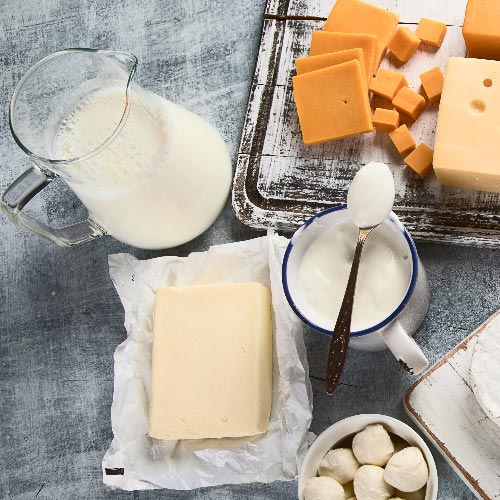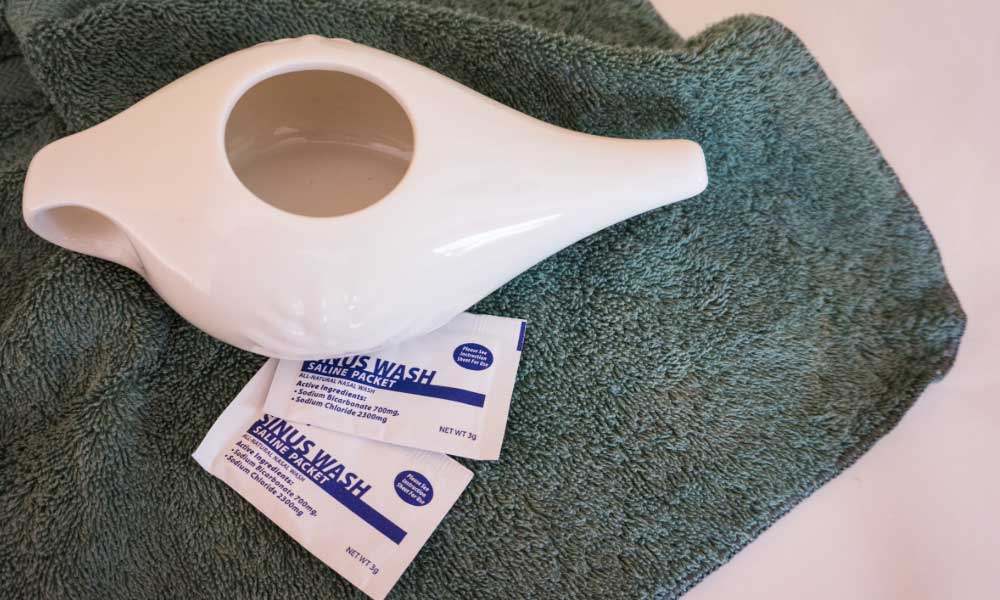
Dairy is one of the top nine allergens in the United States.
- Dairy allergy is the most common allergy among children five years and younger.
- An allergy to dairy products can result in mild symptoms such as eczema or more severe reactions such as anaphylaxis. A past reaction does not predict future allergic reactions, which may be more severe.
- Those with a dairy allergy must avoid all dairy products including sheep and goat milk, as these contain similar proteins to cow milk, and are not a suitable replacement.
- The World Allergy Organization recommends that children under two years of age with a dairy allergy, who are not breast fed, use an extensively hydrolyzed or amino acid based formula to ensure optimal nutritional intake and growth. Dairy-free beverages such as almond and coconut milk, among others, are not suitable replacements for whole milk which is recommended from one to two years of age.
Nutrition Swap
When replacing a food allergen, focus on incorporating a variety of whole foods in your diet that contain the nutrients you’re missing due to eliminating the problem food.
- Dairy products are rich in protein, calcium, vitamin D, vitamin B12, riboflavin and phosphorus. If eliminating dairy from your diet, use a variety of these foods as alternatives:
- Protein: Meat, poultry, fish, dairy products, beans & legumes, nuts, seeds
- Calcium: Sesame seeds, tofu prepared with calcium sulfate, sardines, almonds, salmon, dark leafy greens, beans, legumes, fortified foods (orange juice, non-dairy beverages)
- Vitamin D: Fish, fortified foods (non-dairy beverages, ready to eat cereals, orange juice)
- Vitamin B12: Meat, poultry, fish, eggs, dairy, fortified processed foods (granola bars, cereals)
- Riboflavin: Lamb, spirulina, beef, turkey, pork, chicken, almonds, soybeans
- Phosphorus: Meat, poultry, fish, beans, legumes, seeds, egg, whole grains
Reading Labels
- Some common foods and ingredients to avoid are butter, casein, cheese, cottage cheese, cream, custard, ghee, half and half, lactose, milk in all forms, pudding, sour cream, whey, and yogurt.
- Dairy can be found in baked goods, chocolate, lunch meat, margarine, and nougat. This list is not all inclusive.
Alternatives and Suggested Products
- Use any dairy-free beverages or water as a replacement for cow milk in recipes.
- Suggested products include:
- Ripple, pea based dairy-free beverage
- Orgain vegan shakes
- Enjoy Life snack foods
- Daiya, Follow Your Heart and Go Veggie, cheese & spread substitutes
NOTE: Always double check the allergy statement on any products you purchase. Food manufacturers may change their ingredients at any time.
Recipes
Request an Appointment
